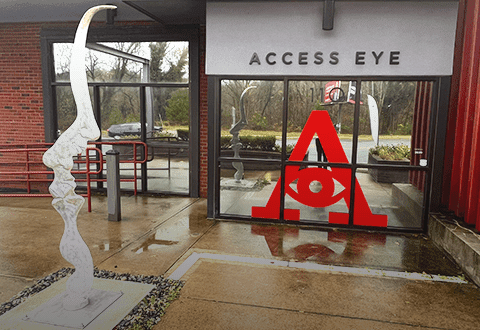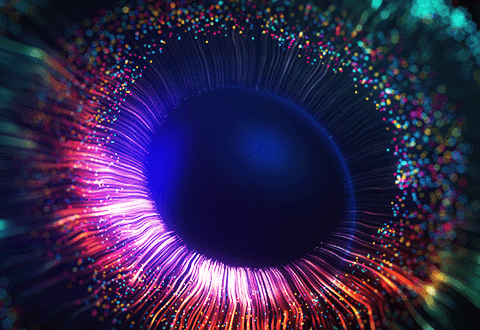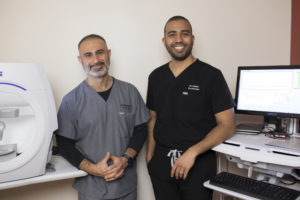Cataract Surgery in Fredericksburg, VA
Also serving Spotsylvania, Stafford & King George
Cataract surgery is one of the safest and the most successful operations performed today.
For many, hearing the word “surgery” may be scary, but once you understand what cataract surgery is and the life changing benefits it can provide, you should look forward to it. The following information is meant to help you make that decision. Please be sure to review this material prior to your pre-operative appointment.

What is a Cataract?
A cataract is the natural lens inside the eye when it becomes cloudy and yellow, which in turn clouds the vision.
When Should I Have Cataract Surgery?
Cataract surgery is an elective procedure. Most people choose to have cataract surgery based on the degree to which vision is impaired and impacts quality of life. Only you, with your doctor’s advice, can decide when the time is right.
Your likelihood of recovering more natural vision with cataract surgery is exceedingly high. You will likely enjoy a rapid recovery of enhanced vision with little disruption to your activities.
IMPROVING LIVES
THROUGH BETTER VISION
What is Involved in Cataract Surgery?
Cataract surgery is performed on an outpatient basis in our surgery center. You will be at the chosen facility for about three hours, however the actual cataract surgery takes about 15 minutes. Only one eye is done at a time. If both eyes have a cataract, we will schedule two different surgery dates for you, one for each eye. You will be lightly sedated and your eye anesthetized so you can feel comfortable during surgery, however, you will still be awake during the procedure.
During cataract surgery the physician uses a small ultrasound instrument to break up the cataract and gently remove it from the eye. All this is done through a tiny incision, which usually requires no stitches. In replacement of the natural lens/cataract that has been removed, everyone receives an intraocular lens implant (IOL). This lens is implanted inside the eye and intended to stay.
A friend or family member will need to bring you in, stay, and take you home the day of surgery.

What is a Lens Implant?
An intraocular lens implant (IOL) is an artificial lens that is implanted at the time of cataract surgery. It replaces the natural lens to restore vision. The lens implant allows you to see correctly after surgery. There are several types of lens implants to choose from.
What are the Different Types of Lens Implants?
Monofocal Implant
A basic monofocal IOL is an intraocular lens that can restore vision at either distance or near. This implant is also referred to as the standard implant. With the standard, single-vision lens implants, there is a very high likelihood that you will need glasses for near-vision activities after surgery, even if you do not wear near-vision glasses before surgery. These activities include reading, applying makeup, shaving, sewing, reading your watch, dialing a cell phone, and baiting fishhooks. Medicare and most private insurance carriers will pay about 80% of your cataract surgery cost with monofocal lens. This is considered basic coverage.
Astigmatism Correcting / Toric Implant
Astigmatism is a focusing problem that occurs when the cornea isn’t evenly curved. This is common and affects most people to some degree. Only high degrees of astigmatism will require a toric lens implant.
A toric IOL is a lens that corrects for astigmatism as well as for the cataract. If it is determined you have significant enough astigmatism to require this type of implant, then this technology will provide you with better quality of vision at one distance, either near or far, with less dependence on your glasses.
The toric IOL is specifically designed to treat those who have astigmatism. In years past, cataract surgery removed the cataract, but a patient with astigmatism still required glasses for near and distance vision. The design of the toric lens makes it possible to reduce or eliminate astigmatism. There is an additional cost for this upgrade, but it is a one-time cost and generally well worth it.
Preysbopia Correcting / Multifocal Implant
Presbyopia is the condition in which the lens in the eye hardens and loses the ability to focus from distance to near. This condition will eventually affect everyone.
A multifocal IOL is an intraocular lens that can restore both distance and near vision, offering the possibilities of little or no dependency on glasses. Some advanced technology implants are designed to provide a full range of vision-near and far. Medicare and private insurance provide basic coverage and allow you to pay for the upgrade, if you choose to do so. After a multifocal IOL, many patients never need glasses again for any activities. Those who do need glasses typically need them only for certain tasks. The goal is to significantly decrease your dependence on glasses. There is an additional cost for this technology.
FAQ
At what age do cataracts become a problem?
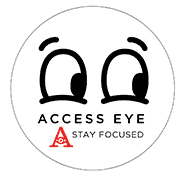
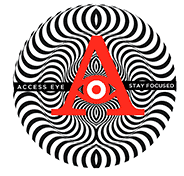
While most patients do not notice symptoms of cataracts until after 60, it is possible to develop cataracts at any age, even in newborns. It can take many years, even decades, for cataracts to progress to the point where they impair your vision. The best way to catch cataracts early is to undergo regular comprehensive eye exams.
How many times do I need to have cataract surgery?


Cataracts can only develop on a natural lens, so any eye that has previously had cataract surgery performed is immune from this problem in the future. The only patients we know that have had cataract surgery twice are those that had surgery on one eye and later returned to handle cataracts that developed on the other eye.
Will I need to wear prescription lenses after having cataract surgery?


Your need for eyewear like eyeglasses or contact lenses primarily depends on which type of IOLs you select. If you have an existing prescription, it is convenient to choose a specific type of IOL (like monovision or multifocal) that corrects refractive errors so that you can limit your dependency on eyewear. IOL options should be discussed with your ophthalmologist prior to the surgery.
Is the recovery from cataract surgery difficult?


Most patients consider cataract surgery and the ensuing recovery period to be relatively easy. During the surgery, patients feel pressure on the eye instead of pain.
The recovery period itself can last a few days or a few weeks depending on the overall health of your eyes. Your vision should be better almost immediately once the cataracts are removed, with the quality of your eyesight improving more as the healing process completes.
Do I need to have cataract surgery if I have cataracts?


By nature, cataracts get progressively worse with time. While the cloudiness you experience may seem tolerable now, the quality of your vision may eventually deteriorate to a point where you can no longer drive, read or see at night.
Many patients who resolve not to have the surgery wind up having to have it later. It is your decision whether to wait until your cataracts cause serious impairment or to take care of them sooner so that you do not have to struggle with lower quality vision for an extended period.
Can I drive myself home after having cataract surgery?


We do not allow our patients to drive themselves home after cataract surgery for a couple reasons. Firstly, your eyes will not be at their full capacity after surgery. Secondly, because our team provides you with a mild sedative to keep you relaxed and comfortable during the procedure, it is not safe to drive until after the sedative is fully out of your system.
Is there anything I can do to avoid cataracts altogether?


Researchers continue to study why cataracts form, but they have yet to make any firm conclusions on steps you can take to prevent them. However, they have identified certain risk factors that can increase your chances of having cataracts, including obesity, high blood pressure and sun exposure. Making lifestyle adjustments may help in that respect, but it is far from a guarantee.
King George Office
7961 Kings Highway
King George, VA 22485
Phone: (540) 371-2020
Office Hours
Ophthalmology in King George, VA Hours
Mondays – 8:00am to 5:00pm
Tuesdays – 8:00am to 5:00pm
Wednesdays – 8:00am to 5:00pm
Thursdays – 8:00am to 5:00pm
Fridays – 8:00am to 5:00pm
Closed for lunch from 1:00pm to 2:00pm
Falmouth Office
110 Cambridge Street
Fredericksburg, VA 22405
(540) 371-2020
Office Hours
Ophthalmology in Falmouth, VA Hours
Monday – 8:00am to 5:00pm
Tuesday – 8:00am to 5:00pm
Wednesday – 8:00am to 5:00pm
Thursday – 8:00am to 5:00pm
Friday – 8:00am to 5:00pm
Route 3 Office
4516 Plank Road
Fredericksburg, VA 22407
(540) 371-2020
Office Hours
Ophthalmology in Fredericksburg, VA Hours
Monday – 8:00am to 5:00pm
Tuesday – 8:00am to 5:00pm
Wednesday – 8:00am to 5:00pm
Thursday – 8:00am to 5:00pm
Friday – 8:00am to 5:00pm
Parkway Office
4701 Spotsylvania Parkway
Suite 110
Fredericksburg, VA 22408
Office Hours
Ophthalmology in Spotsylvania, VA Hours
Mondays – 8:00am to 5:00pm
Tuesdays – 8:00am to 5:00pm
Wednesdays – 8:00am to 5:00pm
Thursdays – 8:00am to 5:00pm
Fridays – Temporarily Closed
Closed for lunch 1:00pm -2:00pm
Dedicated Laser Center
4516 Plank Rd
Fredericksburg, VA 22407
(540) 371-2020
Office Hours
Dedicated Laser Center Hours
Refer to hours listed for the Plank Road Location
Aquia Office
2761 Richmond Highway
Suite 205
Stafford VA, 22554
Office Hours
Ophthalmology in Stafford, VA Hours
Mondays – 8:00am to 5:00pm
Tuesdays – 8:00am to 5:00pm
Wednesdays – 8:00am to 5:00pm
Thursdays – 8:00am to 5:00pm
Fridays – 8:00am to 5:00pm
Closed for lunch 1:00pm -2:00pm













